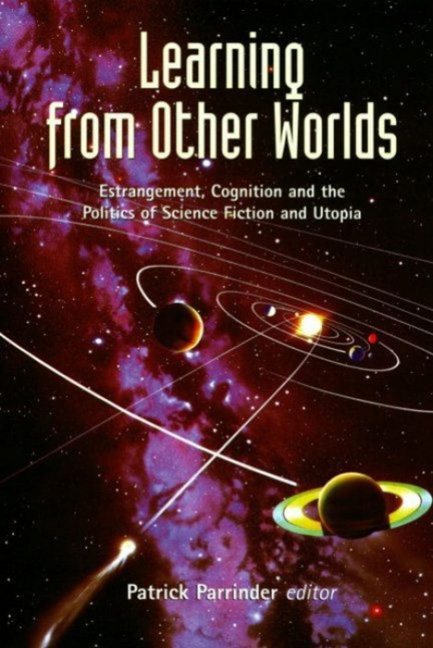Book contents
- Frontmatter
- Contents
- Acknowledgements
- Contributors
- Introduction: Learning from Other Worlds
- Part I Science Fiction and Utopia: Theory and Politics
- Before the Novum: The Prehistory of Science Fiction Criticism
- Revisiting Suvin's Poetics of Science Fiction
- ‘Look into the dark’: On Dystopia and the Novum
- Science Fiction and Utopia: A Historico-Philosophical Overview
- Society After the Revolution: The Blueprints for the Forthcoming Socialist Society published by the Leaders of the Second International
- Part II Science Fiction in its Social, Cultural and Philosophical Contexts
- Afterword: With Sober, Estranged Eyes
- Darko Suvin: Checklist of Printed Items that Concern Science Fiction (with Utopian Fiction or Utopianism, and a Few Bordering Items)
- Bibliography
- Index
Revisiting Suvin's Poetics of Science Fiction
from Part I - Science Fiction and Utopia: Theory and Politics
- Frontmatter
- Contents
- Acknowledgements
- Contributors
- Introduction: Learning from Other Worlds
- Part I Science Fiction and Utopia: Theory and Politics
- Before the Novum: The Prehistory of Science Fiction Criticism
- Revisiting Suvin's Poetics of Science Fiction
- ‘Look into the dark’: On Dystopia and the Novum
- Science Fiction and Utopia: A Historico-Philosophical Overview
- Society After the Revolution: The Blueprints for the Forthcoming Socialist Society published by the Leaders of the Second International
- Part II Science Fiction in its Social, Cultural and Philosophical Contexts
- Afterword: With Sober, Estranged Eyes
- Darko Suvin: Checklist of Printed Items that Concern Science Fiction (with Utopian Fiction or Utopianism, and a Few Bordering Items)
- Bibliography
- Index
Summary
SF in general—through its long history in different contexts—can be defined as a literary genre whose necessary and sufficient conditions are the presence and interaction of estrangement and cognition, and whose main formal device is an imaginative framework alternative to the author's empirical environment, and … it is distinguished by the narrative dominance or hegemony of a fictional ‘novum’ (novelty, innovation) validated by cognitive logic.
Estrangement, cognition, the novum: these well-known terms of Darko Suvin's have borne the main burden of his attempt, declared at the beginning of his 1972 essay ‘On the Poetics of the Science Fiction Genre’, to lay down a ‘coherent poetics of SF’. A ‘poetics’ is a construction of formalist or structuralist theory—it speaks to us, these days, of the age of Roman Jakobson and Northrop Frye—and (as is clear from the above quotation) it addresses only the synchronic aspect of literary texts. Literary history and the politics of the text are never absent from Suvin's writings, but in his poetics of science fiction they are apparently subordinated to the idea of an ‘imaginative framework’—elsewhere he calls it a ‘formal framework’— which is the historically continuous textual structure distinguishing one literary genre from another. In the case of SF, an imaginative framework specified by estrangement, cognition and the novum is said to be common to all true examples of the genre, which Suvin also provides with a ‘long history’ stretching back some centuries before the term itself was invented.
The resulting theory is offered as a ‘heuristic model’ for SF criticism and research, and it has been very widely adopted. But is the model actually coherent? Should a poetics of science fiction still be seen as a desirable and necessary construction? And what sorts of blindness accompany its insights? Suvin himself seems to have been disturbed by these questions. In a number of essays since 1972 he has revisited his poetics of SF, and it is a moot point whether this process of theoretical revision has shored up or tacitly undermined the foundations that he originally laid down.
- Type
- Chapter
- Information
- Learning from Other WorldsEstrangement, Cognition, and the Politics of Science Fiction and Utopia, pp. 36 - 50Publisher: Liverpool University PressPrint publication year: 2000

